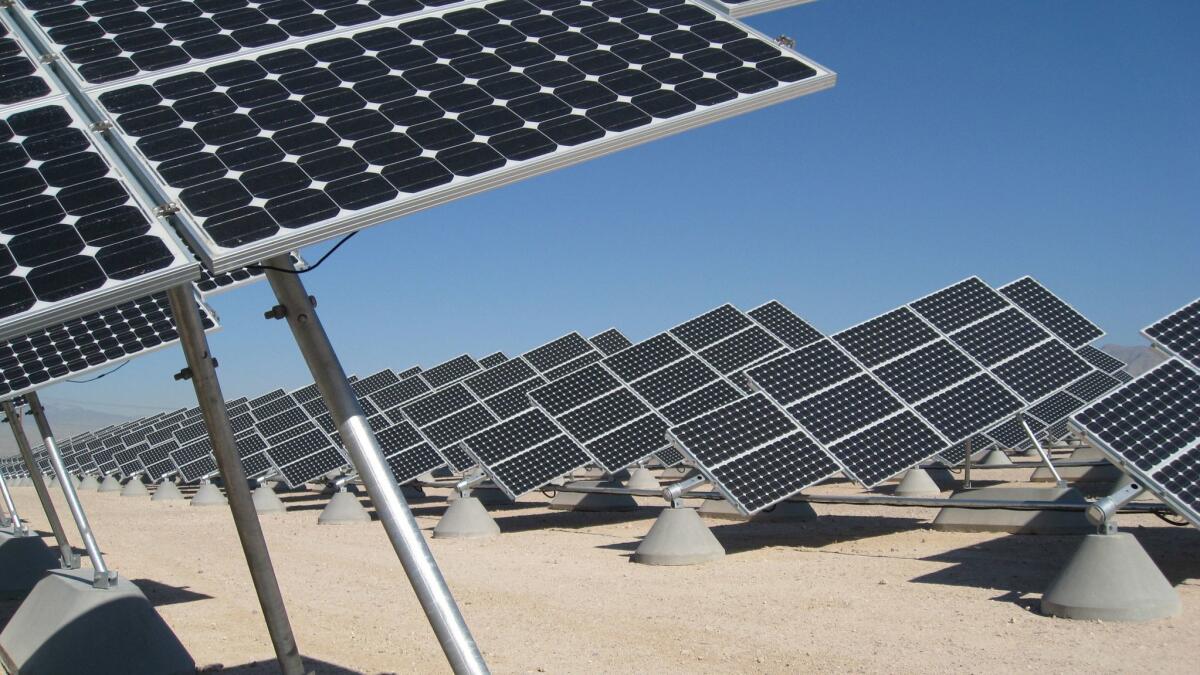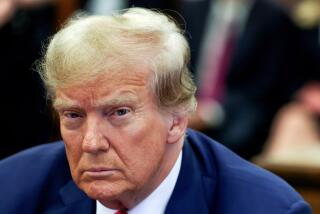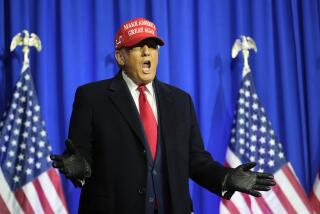Trump tariffs are helping more than double U.S. solar capacity

President Trump wanted more U.S. solar manufacturing — and now he’s getting it.
Hanwha Q Cells Korea on Wednesday said it will build a factory in Georgia. JinkoSolar Holding Co. of China is planning one in Florida. And U.S. companies SunPower Corp. and First Solar Inc. say they’ll boost production in Oregon and Ohio.
The expansion underscores how immediate the reaction has been to the tariffs Trump imposed on imported panels in January to spur domestic manufacturing.
The duties could increase production capacity in the United States by at least 3.4 gigawatts, compared with 1.8 gigawatts at the end of last year, and would add to even more capacity already planned, based on Bloomberg New Energy Finance data.
It remains to be seen whether these factories will create the jobs Trump is after, but analysts say his policies are having a clear impact.
“Absent the Trump tariffs, this wouldn’t be happening,” Jeff Osborne, an analyst at Cowen & Co., said in an interview.
The push for tariffs began in April 2017, when Suniva Inc., a bankrupt Georgia-based panel maker filed a trade complaint arguing that it had been crippled by a flood of imports. Trump responded in January, imposing duties of as much as 30%, saying they were necessary to protect American manufacturers and create jobs.
While the plants announced by Hanwha and others will boost U.S. production, they’re unlikely to employ armies of workers, analysts said. As panel prices have declined, solar factories have become increasingly automated.
“While the Trump administration will claim this as a win, America’s victory is modest,” said Hugh Bromley, a New York-based analyst at Bloomberg New Energy Finance. “The profits will flow offshore, and the highly-automated production lines will bring few jobs.”
The White House didn’t respond to a request for comment.






